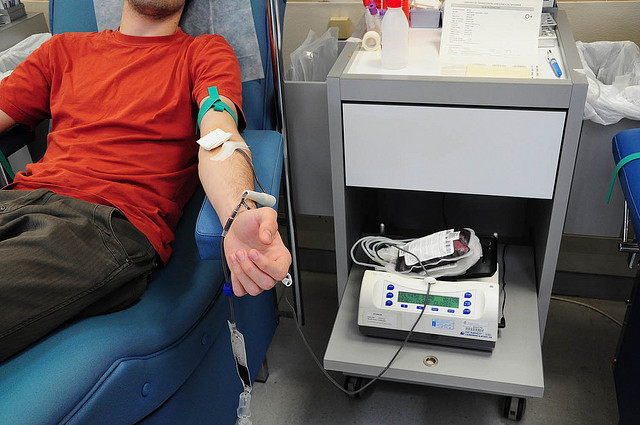
In a major step aimed at ending a national policy of discrimination, the Food and Drug Administration (FDA) of the United States announced on Tuesday that it will lift the decades-old lifetime ban on blood donation by gay or bisexual men.
The department is seeking to replace the lifetime ban on those men, who have had sex with other men, with just a one-year ban after they indulged in homosexual activity. The FDA argues that this minimum ban is necessary in order to keep the blood supply safe.
This has infuriated rights groups as they had sought for the removal of the ban entirely. Decrying the announcement, the rights groups said that expecting a gay blood donor to practice celibacy for a year is neither reasonable nor medically necessary.
The lifetime ban was imposed by the FDA in 1983, when the AIDS epidemic had just started spreading. During the early stages, not much was known about the human immunodeficiency virus (HIV) and there was no quick and accurate testing procedure available to determine if a person was infected with the virus.
The 12-month waiting period also applies to heterosexuals who engage in sexual activities with prostitutes or those people who inject drugs.
The relaxation has been welcomed by many. "This is a very good next step in a process that began in the early 1980s," said Jay Menitove, who chaired a federal advisory committee that recommended the change, The Washington Post reports.
Anthony Fauci, director of the National Institutes of Health's National Institute of Allergy and Infectious Diseases, also hailed the decision. Fauci said, "There's no doubt about it, that any way that you can safely add to the pool of donors to counter this chronic shortage of blood is a good thing."
The decision brings the United States on par with several European countries like Britain, which changed its lifetime ban on homosexuals donating blood to a 12-month restriction in 2011.









!['Had denied Housefull franchise as they wanted me to wear a bikini': Tia Bajpai on turning down bold scripts [Exclusive]](https://data1.ibtimes.co.in/en/full/806605/had-denied-housefull-franchise-they-wanted-me-wear-bikini-tia-bajpai-turning-down-bold.png?w=220&h=138)



